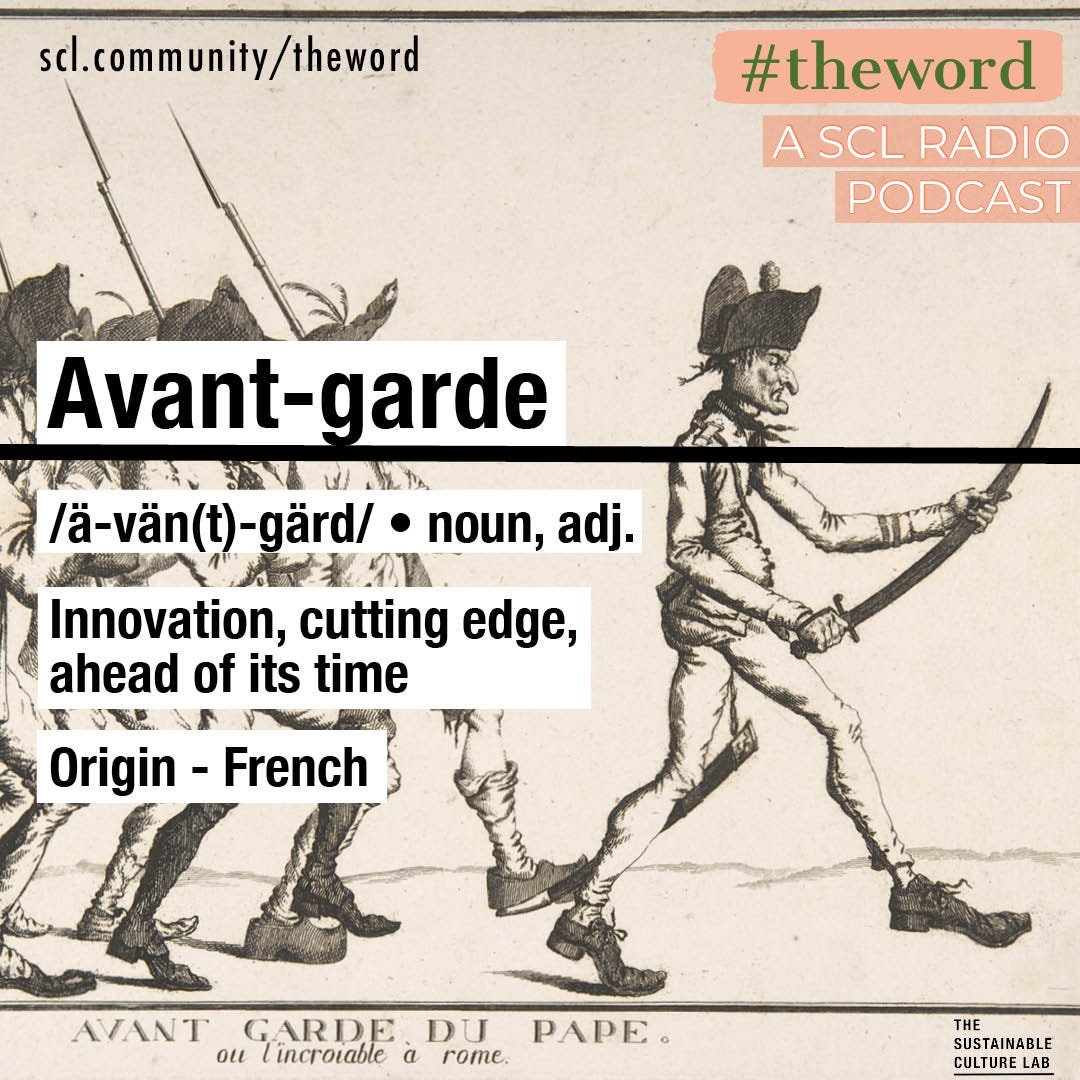Avant-garde • (ä-vän(t)-gärd) • noun, adj.
Definition: innovation, cutting edge, ahead of its time
Origin: French
Avant-garde is a term I have been familiar with for years, but despite studying French, it was never a word I deeply examined. Avant-garde simply means “innovative” and “challenging the status quo” in relation to art and culture, and not necessarily technology. A painting could be avant-garde or a group of intellectuals could be avant-garde as they introduced a new method for seeing the world. At first, avant-garde always felt like a term that was easier to identify than to define. However, once I examined the words a bit more, I started to realize that avant-garde might be the perfect way to describe The Altars Project.
Time and Place
Avant-garde has not always been used to describe cutting edge artists and intellectuals. It was first used to describe a military battalion who went out in advance of the main troops to survey the terrain and see if danger was ahead. Avant means “before” or “advance” in French, and garde means “keep” or “guard.” The avant-garde were the guards who went out before or in advance of the other guards. Additionally, these guards by leaving before the others also had the chance to see what was ahead, and “avant” also means “ahead” in French.
The flexibility of “avant” in avant-garde intrigued me because when “avant” was used in relation to time it would translate as “before,” but when it was used in relation to place, it would mean “ahead.” By leaving before (time) the rest of the troops, the avant-garde could see what was ahead (place). This new understanding of the roots of avant-garde made me think about The Altars Project and global ancestor remembrance traditions because they are both grounded in remembering what came before us in order to clearly see what lies ahead, and advance our lives in a positive way. By celebrating communal traditions such as these, we are also keeping (or “garde”) alive the memory of our ancestors and our rich cultures.
In a society that does not value ancestor remembrance traditions, the act of expanding these traditions will definitely be cutting edge, but ancestor remembrance may be avant-garde regardless of whether or not it is the norm of your society.
Avant-garde vs. The Status Quo
A component of avant-garde, in the conventional sense, is that it combines artists and intellectuals. Artists and intellectuals can be avant-garde independent of each other, but when they collaborate, it can be innovative. The avant-garde ideas from an intellectual can be manifested by an artist, and inspiration can continue to build as these two perspectives work in tandem. The intellectual speaks more from her head and the artist more from her heart and their combination can lead to groundbreaking results. A foreign idea that people previously would have a hard time imagining can quickly become something they understand and celebrate, and this is how the status quo can be successfully challenged.
A society’s status quo does not begin as a problematic or antiquated idea. Normally, the status quo starts as a revolutionary idea that fails to adapt with the time, and now an idea that was once progressive has become regressive. Many people aspire to challenge the status quo, but this can never be a casual endeavor. We may have a feeling for change to push our society in the right direction and break free from regressive or oppressive norms, but our heart and emotions alone cannot create this change. Likewise, we may have ideas that could liberate us from these same norms, but having a logical concept in your head will not achieve this change either.
Dismantling a status quo not only requires the intellect and passion to identify and challenge the flaws of an existing system, but it also requires us to envision and create alternatives to that norm. Avant-garde work ranging from paintings, sculptures, music, and architecture not only expresses the problems we want to confront but also provides an alternative that people can experience.
In an ethnocidal society, the act of creating and equitably sharing culture is avant-garde.
The Altars Project & Provocation
The Altars Project, like all avant-garde work, is a provocation. It is not an antagonistic or violent type of provocation, but it does provoke you to see your relationship with your culture and community in a different light. It provokes to invoke the emotions that we all must confront as we remember the past and those who have passed away. So much of our lives encourage us to constantly look forward and rarely look backward, so the act of remembering can be a peaceful act of provocation against this status quo. By remembering and respecting the events and people who came before us, the people who lived on this land before us, we can feel in alignment with what we wish to see in the future. The Altars Project hopes to provoke all of us to make a more equitable and less ethnocidal society by coming together at least once a year to strengthen our diverse cultures and voices. Our application of avant-garde at The Sustainable Culture Lab incorporates art, philosophy, and language; and we hope our provocative and avant-garde practices can positively impact your lives and challenge America’s ethnocidal status quo.
Tomorrow is Election Day, so prior to casting your ballot (if you have not voted early) come join us for the final night of The Altars Festival. The theme of tonight’s event is “Our Essence and Existence is Political” and we will talk about how ancestor remembrance traditions can strengthen our democracy.



